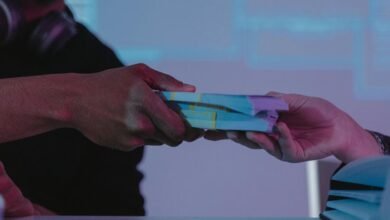Caller Regulation Intelligence Surveillance Tracking Unit 3275236144 3332017739 3481981154 3509009600 3509163401 3276919460

The Caller Regulation Intelligence Surveillance Tracking Unit (CRISTU) plays a critical role in overseeing telecommunications compliance. Utilizing advanced technology, it implements sophisticated caller identification methods to monitor activities effectively. However, this raises significant privacy concerns and ethical dilemmas. As the unit navigates these challenges, the balance between public safety and individual rights becomes increasingly complex. What implications does this have for the future of telecommunications regulation?
Overview of the Caller Regulation Intelligence Surveillance Tracking Unit
The Caller Regulation Intelligence Surveillance Tracking Unit (CRISTU) serves as a vital component in the landscape of telecommunication oversight, particularly in its role of monitoring and regulating caller activities.
By employing advanced caller identification techniques, CRISTU enhances surveillance effectiveness, ensuring compliance with regulatory standards.
Its operations aim to balance freedom with accountability, fostering a transparent communication environment while safeguarding individuals from intrusive practices.
Technology and Methodology Behind Surveillance
Advanced technologies underpin the operations of the Caller Regulation Intelligence Surveillance Tracking Unit (CRISTU), facilitating robust monitoring and regulatory compliance.
Utilizing advanced surveillance technology, CRISTU implements sophisticated data collection methods to ensure effective oversight of telecommunications.
This integration of cutting-edge analytics and real-time data processing enhances operational efficiency, enabling precise tracking of compliance while maintaining the integrity of the regulatory framework.
Privacy Concerns and Ethical Implications
How do the operations of the Caller Regulation Intelligence Surveillance Tracking Unit (CRISTU) balance the need for regulatory oversight with the fundamental rights to privacy?
This question highlights significant ethical dilemmas surrounding data privacy.
The tension between necessary surveillance for public safety and the potential infringement on individual rights raises concerns about accountability, transparency, and the safeguarding of personal information in an increasingly monitored society.
The Future of Telecommunications Regulation
As technology continues to evolve at an unprecedented pace, the landscape of telecommunications regulation faces significant transformation.
Regulatory trends increasingly emphasize adaptive frameworks that support telecommunications innovation while safeguarding user rights. This shift aims to balance the need for robust oversight with the imperative of fostering a competitive, free market.
Future regulations will likely prioritize transparency, consumer protection, and the ethical deployment of emerging technologies.
Conclusion
As CRISTU navigates the delicate balance between public safety and individual rights, it mirrors a tightrope walker poised above a bustling city, where missteps could lead to chaos or scrutiny. With the rapid evolution of telecommunications, CRISTU’s methodologies must adapt continuously, much like a chameleon blending into its surroundings. The unit’s commitment to ethical surveillance practices will be crucial in fostering trust, ensuring that as technology advances, the protection of user privacy remains paramount in this digital landscape.




